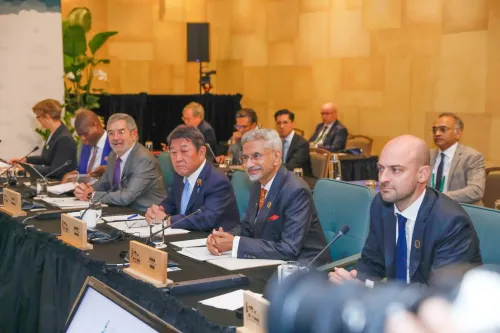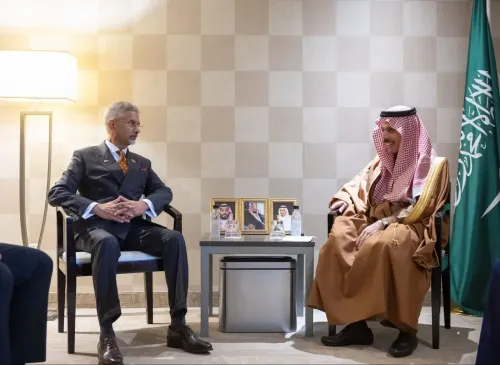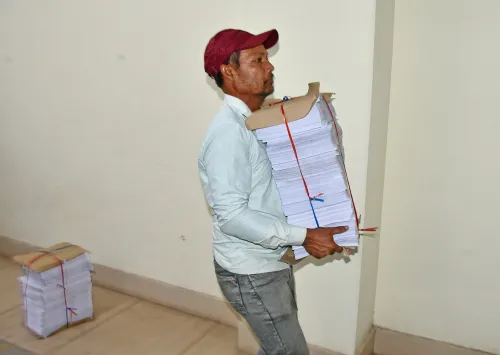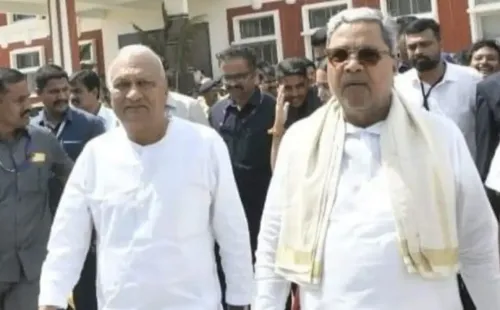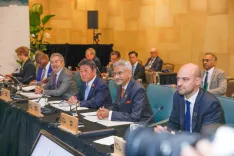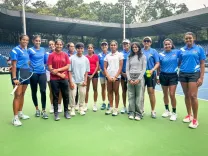Can Chhattisgarh CM Vishnu Deo Sai Enhance Connectivity with Gadkari's Support?
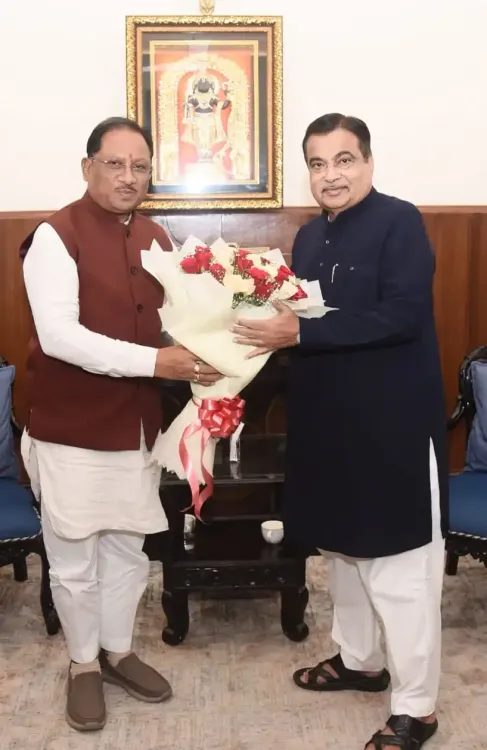
Synopsis
Key Takeaways
- Chhattisgarh CM Vishnu Deo Sai met with Gadkari to discuss infrastructure.
- Focus on rural and border connectivity in 'Vision 2047'.
- Importance of connecting remote areas for economic growth.
- Support from the Central Government for road projects.
- Road expansion crucial for addressing LWE issues.
New Delhi, July 31 (NationPress) The Chief Minister of Chhattisgarh, Vishnu Deo Sai, engaged in discussions with Union Minister for Road Transport and Highways Nitin Gadkari on Thursday regarding the advancements in national highway initiatives and upcoming infrastructure strategies in the state.
During the meeting, the Chief Minister presented Chhattisgarh's long-term initiative, "Vision 2047", which aims to establish an integrated and sustainable transport framework, particularly focusing on enhancing connectivity in rural and border regions to promote inclusive growth.
Sai detailed the ongoing road projects and reiterated the state government's dedication to ensuring their timely completion.
He highlighted the necessity of connecting remote and tribal communities to major highways to improve connectivity and create better economic prospects.
The Chief Minister underscored the importance of enhancing the road system in industrial areas and newly established districts for the overall progress of the state.
He remarked that roads are not just conduits for travel; they are vital for generating jobs, attracting investments, and fostering social change.
Gadkari acknowledged the priorities set by the state government and offered comprehensive support from the Central Government.
He pointed out that upgrading road infrastructure in tribal areas would hasten development and initiate lasting transformations.
The expansion of the road network in tribal zones is crucial to the Union government's goal of eradicating Left Wing Extremism (LWE) from the country, including Chhattisgarh, by March 31, 2026.
To tackle the LWE challenge comprehensively, the Union government ratified a “National Policy and Action Plan to address LWE” in 2015. This policy incorporates a multi-faceted strategy encompassing security measures, developmental initiatives, and ensuring the rights and entitlements of local populations.
Specific programs have been launched for LWE-affected regions, focusing on expanding the road network, enhancing telecommunications, educational empowerment, and financial inclusion.
As of 2022, over 11,600 km of roads have been constructed in LWE-affected regions under two dedicated programs.

